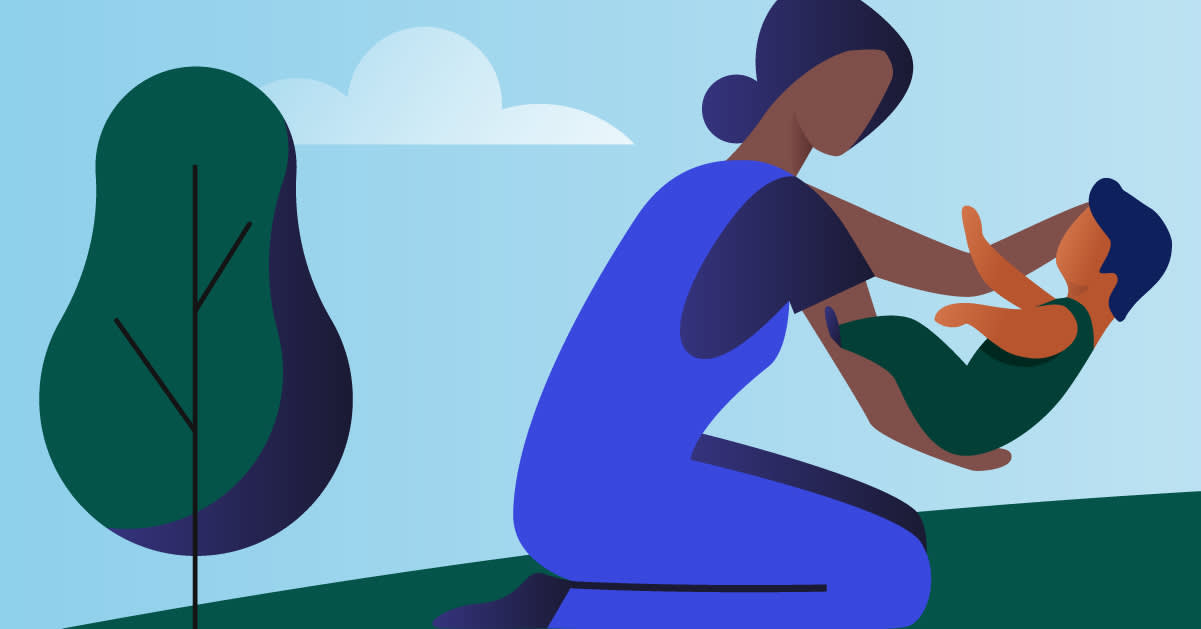Melissa Wirt had a successful business and a big beautiful family, but a personal crisis showed her just how truly isolated she was. In I Was Told There’d Be a Village, Wirt shares how to go from what she calls an “Isolation Mindset” to a “Village Mindset.” Below, Wirt discusses a few of her own challenges in motherhood, what she learned from talking to moms across America, and how we can take the first small steps toward improving our connection with others.
Katie O’Connor: I had such a visceral reaction to this title—as a mom to four, I felt it in my soul. What was the moment you realized you didn’t have a village around you?
Melissa Wirt: I always knew that I was “momming” alone. But I thought that was the way it was supposed to be done—that was simply how you "won" motherhood. Everywhere I looked, society was telling me that I needed to focus all my time and energy towards my kids and family. Five kids in, I had checked everything off of my "want" list: I had my own business. We had moved to a gorgeous home. Still, I felt lost and unfulfilled. That winter, I miscarried alone, and it was then I realized that something had to change.
Why did now feel like the right time for you to write this book?
I started this project during the pandemic when everything felt like it was on pause and moving slower. It felt like a great time to lean into the project. Four and a half years later, this journey has been one of the best gifts I have ever been given. I feel like every book goes on a journey and is released when it’s supposed to be.
Mothers had a moment during the pandemic. We were doing it all: working, schooling, mothering, keeping our families safe. The media finally began noticing how difficult parenting in isolation can be, and how impossible it is to carry that burden without support. Still, when the world opened up, things went back to status quo. Four years later, it has all culminated in this larger discussion on the declining birth rate and how women and mothers are treated in the US. I really hope this book and my story finds a place in the conversation.
You’re a mama to six—what was your most challenging kid transition?
Becoming a mother rocked me to my core. My first was born in the back of the car, and turned my life upside down. I only felt grounded after his birth when I had my second son and began knowing what to expect. Things started making sense. I found my footing as a mother. From that point on, it all just felt meant to be. Nothing ever felt as hard as initially becoming a mother did, and nothing has felt more joyful as welcoming each kid that came after.
What was the biggest lesson you learned from the moms you interviewed for this book?
That moms in America aren’t okay. It sounds sad and depressing, but it’s the one thing that seems to connect us all. And although privilege makes it easier, it doesn’t take away the weight of raising children in a country that doesn’t fully acknowledge our contributions or support us. We all find joy where we can as we undertake the most important job there is, but every mother I talked to—through her optimism and joy—was also challenged by the systemic issues that every mother faces in America.
It’s so easy to give yourself completely to motherhood. And even moms who make plans with friends, often cancel those plans due to exhaustion. What’s your best tip for prioritizing self-care, even when your energy isn’t there?
I think it’s important to lean heavily on the science of connection. If we don’t eat or sleep, we get tired. If we don’t connect with friends or other adult humans, we get tired. My biggest tip would be to lean into the small connections. Go inside to get your coffee, go grocery shopping inside a store, walk around the neighborhood. Even just quick eye contact or a smile with a stranger or acquaintance can give us the energy we need to lean into some of the deeper, sustaining relationships.
We are not meant to mother alone
Latched Mama founder Melissa Wirt interviewed moms across America. The finding? Moms are not okay.

Up Next

The best audiobooks to give and hear this Mother’s Day
From self-help and celebrity memoirs to mothers behaving badly, these are the best audiobooks to help moms feel appreciated, inspired, and thoroughly entertained.

The internet claims it knows you as a parent—Amanda Hess says don’t fall for it

The best podcasts for every type of parent
